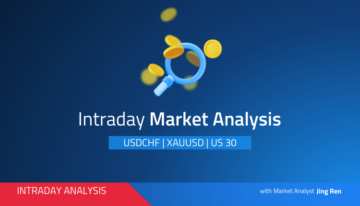Around 40 countries are gathered in South Africa for the BRICS summit, with many having expressed hope to “dedollarize” the world’s economy. Several are trying to posit the group of the most populous countries in the world to set up an alternative to the G-7. But conflicting interests between the countries have made advances in these areas largely impossible.
For forex traders, however, the potential dethroning of the USD can be a major upheaval, so it’s definitely worth keeping an eye on the markets. One of the most successful initiatives to reduce the influence of the greenback has come from bilateral agreements set up between China and its suppliers to use yuan for trade. But that is far from having the impact of an alternative, commodity-backed currency that could challenge the dollar. Though, it should be noted that at least one US presidential candidate is calling for moving the dollar to also be commodity-backed.
The unity is divisive
The main issue is that what drives the BRICS together is what also drives them apart when it comes to forming a currency union. Russia most prominently, but also China chafe at US control over the monetary system, with an emphasis on market stability. This tends to benefit US interests at the expense of policy interests from other countries that aren’t aligned with the US economic model.
So, positing an alternative to the dollar is an attractive position for countries that want to pursue their own combined fiscal and monetary policy. But, creating a shared currency simply means making their policies subject to a different stability mechanism. In order for it to be a viable alternative to the dollar, the BRICS currency would have to not be subject to monetary controls by any of the constituent countries. This conflicts with the objective of several of the countries, China and Brazil, in particular, to set non-market driven policy.
Expanding only makes the problem worse
China has currency controls and is trying to manipulate its trade and economic situation by fixing the price of the yuan. Recently, the price-fixing has hit record differences with the market’s pricing, which means that the Chinese government is becoming more interventionary in forex. This would likely leave other countries more nervous about dealing with a currency backed substantially by China.
Brazil is facing a different issue, which is more common among emerging economies that would like a dollar alternative (such as Argentina): The government wants to deficit spend, which would naturally lead to inflation. A depreciating currency isn’t something that’s particularly attractive for international trade and banking. Brazil is supporting the integration of Indonesia into the block. Indonesia is in a similar situation to Brazil in terms of fiscal policy, having substantially increased its deficit spending, resulting in higher inflation. Inflating away large debts contradicts the objectives of export-oriented countries like China, Russia, and South Africa which are looking for stability in their capital reserves.
The dollar to remain king
Although there is a strong incentive for many countries to support de-dollarization, those incentives are keeping them from finding common ground on a viable alternative. Individual deals between exporting countries, such as between China and Saudi Arabia, or India and Qatar, could be expected to increase over time. But, a BRICS currency would face many of the same challenges that almost exploded the Euro back in 2011, effectively ending it as a viable alternative to the dollar. Except the BRICS don’t have the long-standing trust of the market that Germany in particular has built up over decades.
Given the geopolitical context and the recent deficit spending-induced inflation in the US, efforts to undermine the dollar are likely to continue. But the conclusion of the current BRICS summit will almost certainly end with no advances towards a dollar alternative, or being a counterpoint to the G-7.
Trading the news requires access to extensive market research – and that’s what we do best.
- SEO Powered Content & PR Distribution. Get Amplified Today.
- PlatoData.Network Vertical Generative Ai. Empower Yourself. Access Here.
- PlatoAiStream. Web3 Intelligence. Knowledge Amplified. Access Here.
- PlatoESG. Automotive / EVs, Carbon, CleanTech, Energy, Environment, Solar, Waste Management. Access Here.
- PlatoHealth. Biotech and Clinical Trials Intelligence. Access Here.
- ChartPrime. Elevate your Trading Game with ChartPrime. Access Here.
- BlockOffsets. Modernizing Environmental Offset Ownership. Access Here.
- Source: https://www.orbex.com/blog/en/2023/08/brics-try-to-end-dollar-but-success-remains-elusive
- :has
- :is
- :not
- $UP
- 2011
- 40
- a
- About
- access
- advances
- africa
- agreements
- aligned
- also
- alternative
- among
- an
- and
- any
- apart
- app
- ARE
- areas
- Argentina
- AS
- At
- attractive
- away
- back
- backed
- Banking
- BE
- becoming
- being
- benefit
- BEST
- between
- Block
- Blog
- Brazil
- brics
- built
- but
- by
- calling
- CAN
- candidate
- capital
- certainly
- challenge
- challenges
- China
- chinese
- combined
- come
- comes
- Common
- conclusion
- Conflicting
- conflicts
- constituent
- context
- continue
- control
- controls
- could
- counterpoint
- countries
- Creating
- Currency
- Current
- dealing
- Deals
- decades
- DEFICIT
- definitely
- differences
- different
- do
- Dollar
- Dont
- driven
- drives
- Economic
- economies
- economy
- effectively
- efforts
- emerging
- emphasis
- end
- ending
- Ether (ETH)
- Euro
- Except
- expected
- expense
- expressed
- extensive
- eye
- Face
- facing
- far
- finding
- Fiscal
- For
- forex
- Forex Trading
- from
- gathered
- geopolitical
- Germany
- Government
- Greenback
- Ground
- Group
- Have
- having
- higher
- Hit
- hope
- However
- HTTPS
- image
- Impact
- impossible
- in
- Incentive
- Incentives
- Increase
- increased
- india
- individual
- Indonesia
- inflating
- inflation
- influence
- initiatives
- integration
- interests
- International
- International Trade
- into
- issue
- IT
- ITS
- keeping
- large
- largely
- lead
- least
- Leave
- like
- likely
- live
- long-standing
- looking
- made
- Main
- major
- MAKES
- Making
- many
- Market
- market research
- Markets
- means
- mechanism
- Mobile
- Mobile app
- model
- Monetary
- Monetary Policy
- more
- most
- moving
- naturally
- news
- no
- noted
- objective
- objectives
- of
- on
- ONE
- only
- or
- order
- Other
- over
- own
- particular
- particularly
- plato
- Plato Data Intelligence
- PlatoData
- policies
- policy
- position
- potential
- presidential
- presidential candidate
- price
- pricing
- Problem
- Qatar
- recent
- recently
- record
- reduce
- remain
- remains
- requires
- research
- reserves
- resulting
- Russia
- s
- same
- Saudi
- Saudi Arabia
- set
- several
- shared
- should
- similar
- simply
- situation
- So
- something
- South
- South Africa
- spend
- Spending
- Stability
- strong
- subject
- substantially
- success
- successful
- such
- Summit
- suppliers
- support
- Supporting
- system
- tends
- terms
- that
- The
- The Block
- the world
- their
- Them
- There.
- These
- this
- those
- though?
- time
- to
- together
- towards
- trade
- Traders
- Trading
- Trust
- try
- Undermine
- union
- unity
- upheaval
- URL
- us
- USD
- use
- viable
- want
- wants
- we
- What
- when
- which
- will
- with
- world
- world’s
- worth
- would
- Yuan
- zephyrnet












